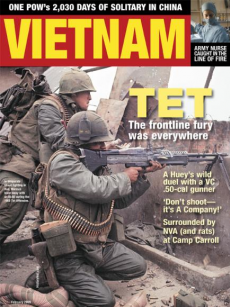
The media plays a large role in the public perception of war today. Every day news channels inform us of conflicts and violence around the world. However, colour televisons and news channels were not largely avilable until the late 1960s and early 1970s. For the United States, this came at a time when they were becoming increasingly involved in the Vietnam War with seemingly no exit strategy. There were already anti-war protests brewing so when North Vietnam launched a massive offensive during the Tet lunar holiday in January 1968 it shocked the US and left the people in awe of the footage on their televisons and they had never before seen footage of their nation at war abroad.
The media’s response to the Tet offensive was, in a word, revolutionary. The US was becoming a ‘televisual society’ by 1968 with the NBC (National Broadcasting Company) , CBS (derives from Columbia Broadcasting Service) and ABC (American Broadcasting Company) all broadcasting almost entirely in colour. Now that millions of televisions were owned across the US and television news far exceeded the limits of newspapers (even the popular New York Times) it meant that news could be reported much faster (though slow by modern standards) and reach a wider audience. Camera crews consisted of teams of three lugging around heavy equipment and due to the Vietcong’s guerrilla tactics and favourable night raids little credible footage was ever caught of the war until Tet in 1968. In fact most footage of the war up until 1968 was given the title ‘The wily VC got away again’. Therefore when the Vietcong attacked Southern cities during daylight in the Tet offensive it gave the stunned camera crews extensive, dramatic and easily accessible footage of bitter house to house fighting, changing the whole dynamic of the war for the US public. This footage was so revolutionary that it was reported by NBC the night it was captured and the shock of the commentators heightened the dramatic effect for the millions of viewers across the US. Furthermore, Tet was so influential that CBS’ anchorman Walter Cronkite even travelled to Vietnam for two weeks in order to join the camera crews and report on the fighting live.The competing news channels all eager to capture this revolutionary footage meant that the Tet offensive dominated the media, covering all news channels and newspapers; it was impossible to miss.
Furthermore, General Westmoreland stated after Tet that although the Vietcong had breached a wall to the US embassy in Saigon they had been defeated and it was a conclusive victory for the US. The assembled journalists could not believe how casually Westmoreland shrugged off this bold and dangerous move by the enemy and this attitude largely reflected Johnson’s administration as a whole. Indeed they repeatedly showed either arrogance or a lack of understanding of the enemy, claiming that the US held the upper hand, assuring victory firstly after Johnson’s escalation in 1965 and then later again in 1968, stating that ‘the military momentum had shifted in favour of the United States and the ARVN’(Army of the Republic of Vietnam [South]). The fact is that the US weren’t gaining the upper hand and they weren’t as prepared as they believed to fight the war. The Vietnamese knew the jungle, they grew up learning basic survival instincts for their home territory, indeed catching fish with primitive equipment to live off of was considered an activity for children, and quite simply the US weren’t prepared for the harshness of the South East Asian theatre of warfare. Therefore when the media portrayed the bold actions of the Vietcong during the Tet offensive, assaulting Southern cities and even holding the ancient City of Hue for three weeks, contradicting the Government’s claims, it spread great ripples of fear in Washington.
The power of the media as a propaganda tool became realised during Vietnam and its revelation of the situation in Vietnam no doubt influenced the Governemnt as they began to consider an honourable withdrawal from the war with President Nixon eventually succeeding Johnson and getting US troops out of Vietnam. It's always worth remembering in regards to history and war that there are many more influences to winning a war than just military might. Innovations, public support, economy, geographical positions, air or naval superiority and more recently the impact of media must all be considered when analysing a war.
IMAGE: http://tetoffensive.files.wordpress.com/2011/11/tet_offensive_magazine_cover.jpg

0 Comment:
Be the first one to comment on this article.